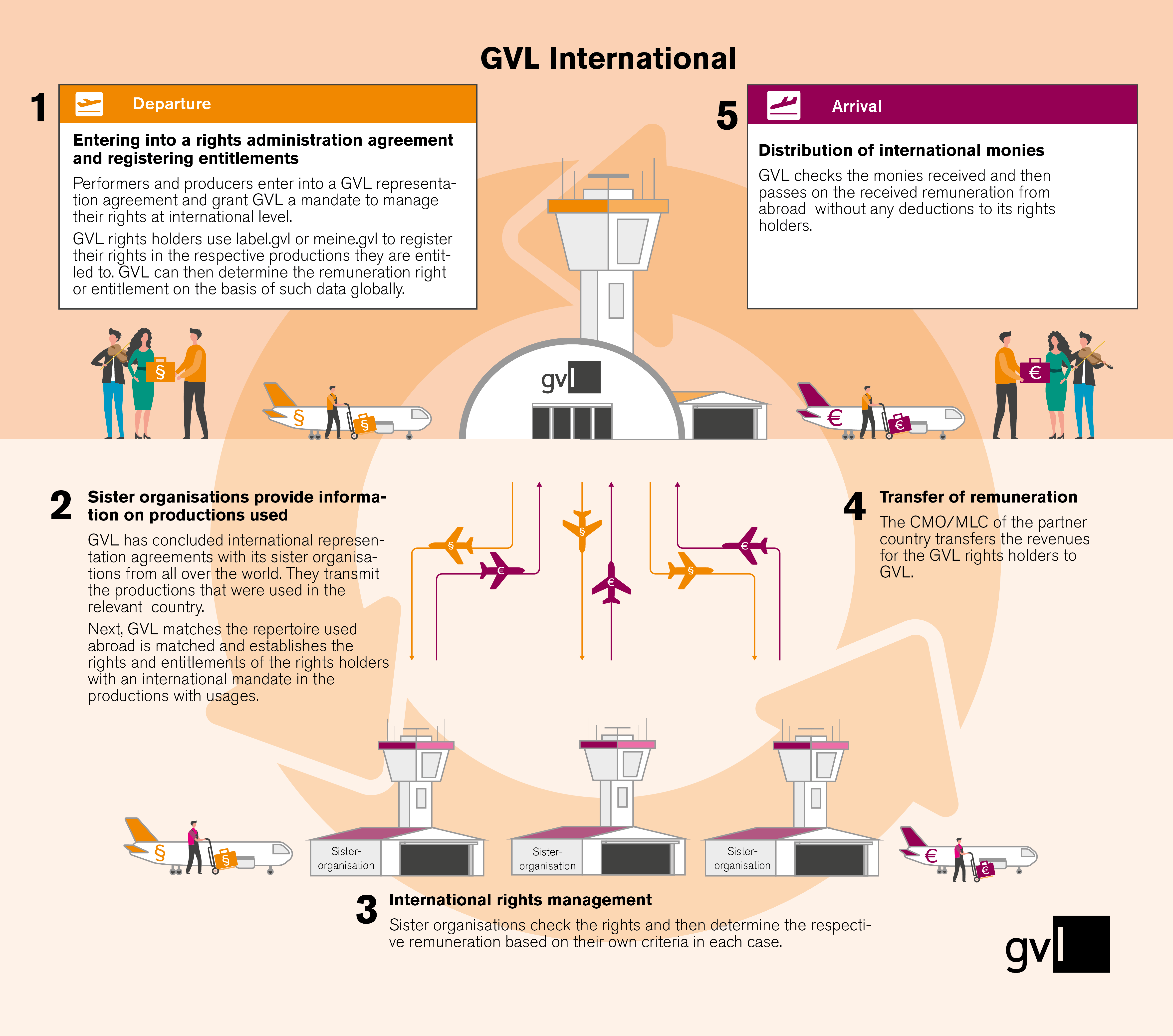GVL in the international arena: Between competition and partnership
Interview with Burkhard Sehm, Director Legal & Business Affairs
Art does not end at country borders. As a consequence, GVL represents the interests of its rights holders worldwide. Apart from the remuneration exchange as such, strategic cooperation with international partners and collective management organisations/music licensing companies (CMOs/MLCs) has significantly gained in importance over the last few years. We spoke with Burkhard Sehm, Department Manager, Legal & Business Affairs, who is responsible for the international activities of GVL, about these developments.
So what are the developments of the international activities of GVL in the last few years?
In terms of economy, we experienced clear growth. On the one hand, this is due to the fact that we concluded new and additional representation agreements with international CMOs/MLCs. On the other hand, we optimised our technical systems and processes and were therefore able to place our operational cooperation on a solid foundation. We also witness our joint investments in international database projects bearing fruit: There is now higher quality data available which helps increase the international exchange of remuneration. As a consequence, we managed to generate nine million euros from abroad in 2021; they also include payments for preceding periods in the form of special items. These international revenues are passed on to the GVL rights holders in a timely manner, up to four times a year. These results are backed by an effective team at GVL. It pays off: More and more international rights holders are now entrusting us with the management of their international rights.
What role does GVL play for other CMOs/MLCs at international level?
GVL is representing more than one million international performers and labels by way of representation agreements. As one of the biggest and financially strongest collective management organisations/music licensing companies at a global scale, GVL is therefore a much noticed partner in the international arena. Due to that, sister organisations have high expectations in terms of economic strength and the seamless and transparent exchange of remuneration with GVL. GVL is also regarded as a know-how source in a plethora of disciplines relating to CMOs/MLCs. It is our goal to continue to meet these expectations.
What advantages does GVL gain from its international business - apart from the collected revenue?
In terms of our international business, we are operating in an extremely fertile environment of tension, where we encounter the other CMOs/MLCs as competitors and partners at the same time. After a, we benefit from the progress and further development of other organisations. As one of the biggest global collective management organisations/music licensing companies, we are engaged in international working groups and committees to promote international collaboration and knowledge exchange; we do this, for example, under the umbrella of SCAPR (Societies’ Council for the Collective Management of Performers’ Rights) or the umbrella of IFPI (International Federation of the Phonographic Industry). GVL is a welcome and valued partner and driving force. Of course, we are also active and effective when it comes to placing topics there which are in the interest of our rights holders.
So what do the activities in such working groups look like? What topics are currently “hot”?
There is a broad range of topics we focus on in the working groups. It includes operational, legal, economic and tariff-related issues. In the past years, technical matters regarding international database solutions were in the foreground. Overall, a lot of potential is seen in the standardisation of processes and interfaces and the centralisation of data sources. In this context, one should refer to solutions such as VRDB (Virtual Recording Database), RDx (repertoire data exchange service) or IPD (International Performers Database). GVL plays a major role in the development of these projects.
Has COVID-19 affected international cooperation?
Probably to the same extent as was the case in other business contexts. Using videoconferencing tools increased the frequency of meetings and opened them up to a larger circle of participants. By doing so, a certain degree of effectiveness could be gained. Nevertheless: The personal exchange which is so important for a good cooperation in a rather heterogeneous international environment, conversations and input outside of the conference events or mutual visits are missing tremendously. We are really glad that we were able to welcome guests at GVL after two years of digital meetings and are now also in a position to follow up on personal invitations.



